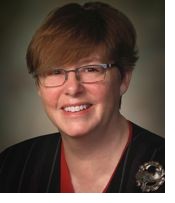Law professor witness to historic copyright clash
May 09, 2014
 A fight over copyright in the digital age was unleashed at a Standing Subcommittee on Copyright and Related Rights (SCCR) of the World Intellectual Property Organization (WIPO) held in Geneva last week.
A fight over copyright in the digital age was unleashed at a Standing Subcommittee on Copyright and Related Rights (SCCR) of the World Intellectual Property Organization (WIPO) held in Geneva last week.
And Western Law professor Margaret Ann Wilkinson had a front row seat for the historic disagreement between nation states.
Wilkinson, a delegate at the meeting, is a Legal Advisor to the International Federation of Library Associations and Institutions (IFLA).
Discussions on both copyright protection for broadcasting organizations, and on limitations and exceptions to copyright, broke down when the European Union rejected continuing exploration of possible treaty language for library and archive exceptions favoured by numerous other countries.
“For the past three years, Member States have been looking at draft texts on copyright exceptions for libraries and archives. The EU is now trying to pretend these don’t exist … [and apparently] came to WIPO with one goal in mind: to kill the discussion,” observed Stuart Hamilton, Deputy Secretary General of the IFLA.
This EU rejection, in turn, led other nations to reject apparent progress made during the session on copyright protection for broadcasting organizations.
“While WIPO has done an admirable job of instantiating rights for copyright holders into international law, these interests are also represented in international trade agreements,” notes Wilkinson.
“Information users’ rights, on the other hand, are not part of trade and can only be enshrined internationally by WIPO. A treaty for libraries and archives - institutions present throughout the globe and serving many publics - will guarantee strides toward achievement of the twin human rights goals of global participation in cultural life and freedom of expression.”
Wilkinson says it remains to be seen whether the member states will be able to move forward again from this current impasse during the next SCCR, scheduled for the end of June.
Read media release from the IFLA






